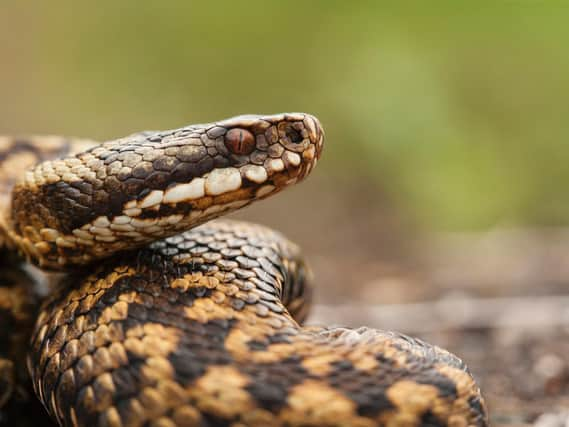Northampton vet warns that dogs could be at risk as snakes emerge from hibernation


Iain Fletcher, clinical director at Spinney Lodge Vets, in Kettering Road, has issued the warning after a number of snake attacks on dogs have been reported across the country.
Adders, which are a protected species and the UK’s only native poisonous snake, hibernate over the winter and emerge during the spring. After unseasonably cold temperatures throughout much of April, the snakes are now beginning to make an appearance as the warmer weather moves in.
Advertisement
Hide AdAdvertisement
Hide AdAs a result, Spinney Lodge, which also has practices in Wootton Fields and East Hunsbury, is encouraging dog owners to be aware of the potential dangers and what they should do if their pet has been bitten.
Iain said: “There have been several reported adder bites on dogs in other areas over the past couple of weeks. Adders generally hibernate from October to late-April, waking up when the weather warms up and they can bask in the sun.
“They only tend to bite in self-defence, for instance when they are stepped on accidentally or disturbed by an inquisitive dog but when they do, bites can be dangerous as they can induce lameness, vomiting and changes to the heart beat, blood pressure and breathing rate.
“Visually, bites typically result in swelling which is dark in colour and which can quickly become severe. If your dog has been bitten by an adder you should seek veterinary attention as soon as possible. We will treat the dog for shock and swelling, as well as administering anti-venom where appropriate.”
Statistics show most adder bite cases survive, with one study suggesting less than one in 20 treated dogs died as a result of a bite.